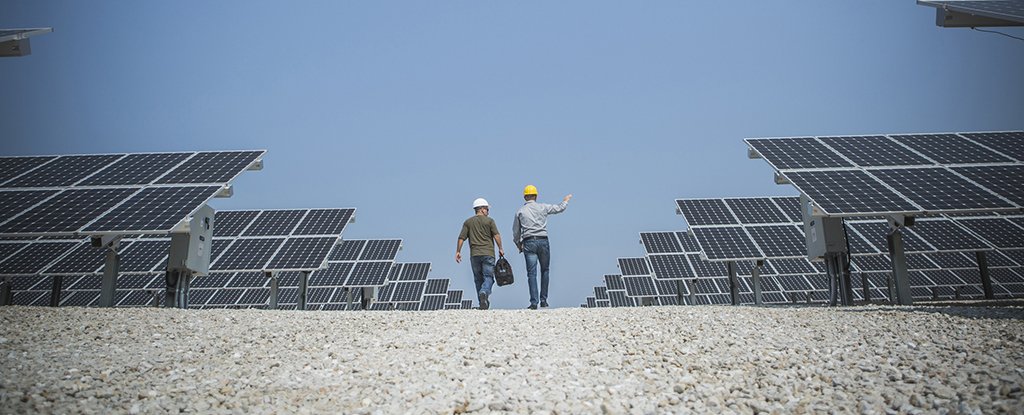Products You May Like
Many fears around transitioning our societies towards a more climate-friendly future understandably revolve around job losses. While it’s true that some forms of work will no longer be available, time and time again the research has shown that such a transition will overall create a lot more work.
Now, an international team of researchers has found that keeping temperatures well below 2 °C will lead to a net gain of 8 million energy jobs by 2050.
“Currently, an estimated 18 million people work in the energy industries – a number that is likely to increase, not decrease, to 26 million or by over 50 percent if we reach our global climate targets,” said one of the team, environmental economist Johannes Emmerling from the RFF-CMCC European Institute on Economics and the Environment in Italy.
“Manufacturing and installation of renewable energy sources could potentially become about one-third of the total of these jobs, for which countries can also compete in terms of location.”
Looking at 50 countries around the world, the team created an integrated assessment model under six different scenarios: three where global warming stays well below 2 °C, and three where we continued business as usual.
They found that under the 2 °C scenarios there was no overall loss of jobs in the energy sector because the loss of fossil fuel jobs will be more than compensated for by gains in manufacturing solar and wind power.
Under these emissions-cutting scenarios, the number of jobs created actually significantly increases.
“In our [well below 2 °C] scenarios, fossil fuel jobs might decline considerably from 12.6 million today to 3.1 million. This decline is concentrated in the extraction of fossil fuels (coal mining, oil, and gas production and exploration), which account for around 80 percent of the job losses,” the team wrote in their paper.
“Fossil fuel extraction jobs would rapidly decline, but losses will be compensated by gains in solar and wind jobs, particularly in the manufacturing sector (totaling 7.7 million in 2050).”
Many academics flag that retraining workers is key to lowering our reliance on coal and other fossil fuels, and, ultimately, transitioning out of these types of jobs will benefit people in more ways than one.
Retraining into something more profitable (and likely to expand) like the solar industry would be a win for the environment, without leaving workers out to dry.
“Extraction sector jobs are more susceptible to decarbonization, so there need to be just transition policies in place,” said first author Sandeep Pai, who undertook the research at The University of British Columbia.
“In many cases, fossil fuel workers also hold political influence because of their history and high rates of unionization among others, so as we move to low carbon sources, it is important to have a plan in place for the general acceptability of climate policies.”
Unfortunately, the job gains and losses are not equally distributed globally. The team found that some countries, such as China, would lose jobs compared to today, whereas the US, the Middle East, and North Africa would gain jobs because of the expansion of renewable energy.
They also have some fantastic news for how quickly we can make this happen – even if you’re in a country that wasn’t the first (or second, or even tenth) to make a move towards renewables.
“Data on solar photovoltaics shows that, although Chinese firms only entered the market in 2000, which was 20 years after the first movers, Chinese firms now account for over half of all manufacturing,” the team wrote in their paper.
“This shift happened in only 10 years.”
Looks like if we really want it, we can make it happen – and all while keeping a booming energy job sector.
The research has been published in One Earth.
